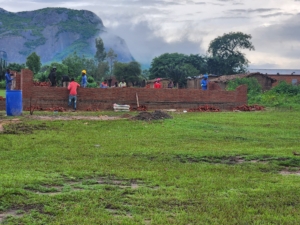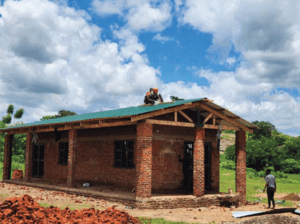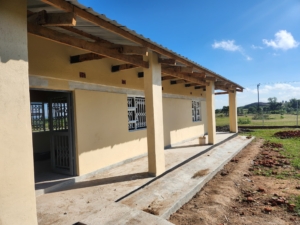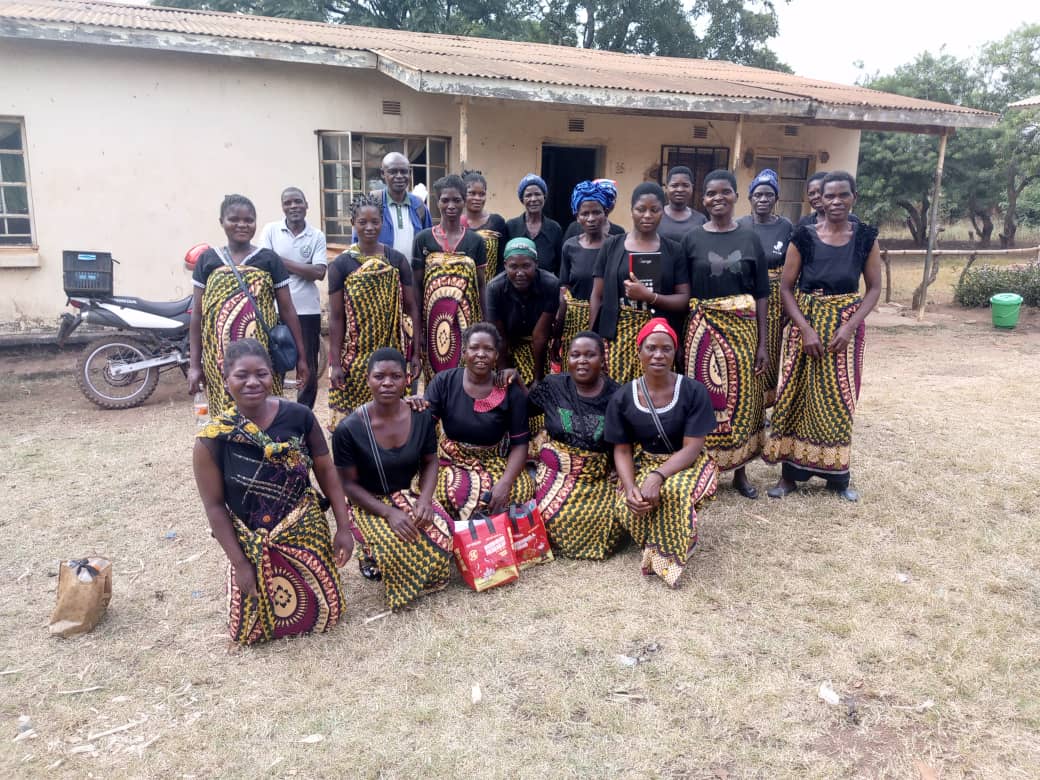Farmer Field School
Donor: Palladium Our Communities Fund
Location: Chadza, Central Malawi
This year marked an exciting milestone for our partners in Malawi. Construction officially began on the Rural Poultry Centre’s new Farmer Field School in Chadza! Set against the stunning backdrop of Ngala and Msozi mountains, the school’s location is as inspiring as its purpose.
Thanks to support from the Palladium Our Communities Fund, the first phase of construction began in March, including a main building with a storeroom and egg incubation room, along with a toilet block, guard house, and perimeter fence.
Once up and running, the school will become a hands-on training hub for healthy, sustainable poultry production. The incubation facility will help meet local demand for hardy, low-input chickens offering a more resilient and affordable option for rural families.
We’re thrilled to see this long-envisioned project take shape and can’t wait to witness the impact it will have in the months and years to come.
”The Farmer Field School at Chadza will empower local farmers with growing skills, nourish their communities and help families build lasting food security and knowledge to thrive.”
– Adija Masambo, Rural Poultry Centre.
Nkhuku za Thanzi – Banja la Thanzi (Healthy Chickens – Healthy Families)
Donor: DFAT Australian NGO Cooperation Program (ANCP)
Location: Dowa West District
In Malawi, Kyeema’s work continues to grow through our partnership with the Rural Poultry Centre (RPC), strengthening community-led solutions to improve food security, income generation, and animal health.
This year, we supported the establishment of community vaccinator programs in four new Extension Planning Areas (EPAs) across Dowa West District. A total of 48 Community-Based Vaccinators (CBVs) were trained and equipped to deliver regular Newcastle disease vaccinations. They’ve already vaccinated an estimated 73,000 chickens, benefitting nearly 13,000 people across 2,923 households.
The program continues to build momentum, with plans to expand to three additional EPAs and train 35 more CBVs in the coming year. Early results from past projects have shown that vaccinated households raise up to 83% more chickens, and we look forward to tracking similar impact here.





